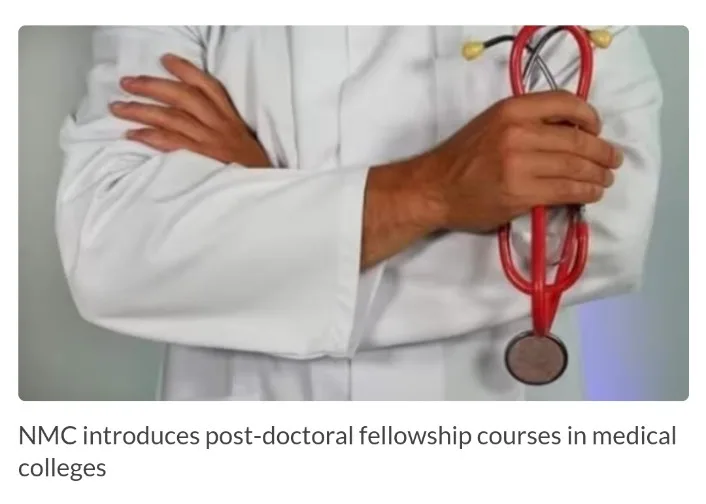New Delhi: In a pioneering move, the National Medical Commission (NMC), the medical education regulator, has introduced post-doctoral fellowship courses in medical colleges under its regulation. This initiative aims to bolster research endeavors and foster the development of clinical skills among medical professionals.
Until now, medical institutions independently devised and sanctioned such courses to train doctors. The recent notification of the “Post-Graduate Medical Education Regulations, 2023” by the regulator signifies a landmark shift. Under these regulations, once a medical college is granted permission to commence postgraduate courses or seats, the course will be recognized officially.
Dr. Vijay Oza, President of the Post-Graduate Medical Education Board of the NMC, highlighted that this change will streamline the process for students to register their degrees post passing postgraduate examinations.
Replacing the Postgraduate Medical Education (Amendment) Regulations, 2018, the new regulations maintain the continuity of the existing NEET-PG examination until the proposed National Exit Test (NExT) becomes operational for postgraduate admissions.
The regulations further stipulate that all postgraduate students will function as full-time resident doctors, working reasonable hours with adequate time for rest. Additionally, they will be entitled to a minimum of 20 days of casual leave and five days of academic leave per year. The regulations introduce a written provision for one weekly holiday, a noteworthy addition compared to the previous lack of such provisions.
Dr. Oza emphasized that these groundbreaking reforms aim at enhancing the standards of postgraduate medical education, promoting quality, ethical practice, and inclusivity within the medical fraternity. Dr. Yogender Malik, a member of the Ethics and Medical Registration Board at NMC, echoed this sentiment, stating that the comprehensive reforms underscore the commitment to nurturing a proficient and ethical healthcare workforce.
To ensure effective implementation, the regulations include a penalty clause encompassing monetary fines, reduction in admission capacity, or complete cessation of admissions.
By PTI




